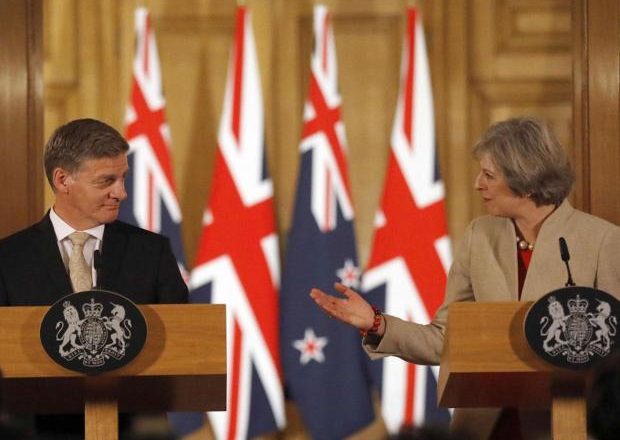
How Will the UK’s Rising Trade Bill Impact on its Relationship with the U.S.?
Over the course of recent years, the UK and the U.S. become increasingly close from an ideological and policy perspective. Even though this has been challenged by the election of the decidedly right-wing and populist Donald Trump as the American President, the UK continues to back the U.S. in a number of economic, political and military endeavours.
For some, this profound (if often controversial) relationship is providing comfort ahead upcoming Brexit negotiations. After all, Britain will most likely bear the brunt of reduced trade opportunities and increased tariffs once it has left the EU, regardless of whether it is able to negotiate a viable exit deal or not.
How Brexit Could Leave the UK With a Huge Oil and Gas Trade Bill
In the mainstream media, the most obvious consequence of Brexit is the sustained devaluation of the pound. Outlets like ETX Capital have reported on the downfall of the pound over the course of the last year, and it continues to trade in a narrow range against the U.S. Dollar.
This is just the tip of the iceberg, however, as the UK’s oil and gas trades bill will also increase dramatically in a worst-case Brexit scenario. In fact, the North Sea industry has warned that this combined trade bill could rise to a staggering £1.1 billion per annum, which is nearly twice as much as the current figure of £600 million.
This rising tariff will impact on approximately £61 billion worth of oil and gas related goods (and services), and it highlights the dangers and financial costs associated with reverting to World Trade Organisation (WTO) rules. This may be necessary, of course, depending on the UK’s future deal with the EU and its ability to negotiate agreements with independent nations in the Commonwealth.
How Will This Effect the Relationship Between the UK and the U.S.
The latter point is particularly interesting, as it highlights how the UK’s future will be impacted by the leverage that it secures and its ability to negotiate improved tariffs across the globe. In the energy market, for example, it is thought that the UK could actively reduce the annual cost of gas and oil trades by £100 million each year, particularly if it is able to effectively negotiate terms with the EU and the U.S.
Striking a viable deal with the U.S. will prove challenging, however, and not only because of the nation’s growing oil export market and the competitive costs that drive this. The controversial Trump is also a proud protectionist and a self-proclaimed deal maker, which means that he will be solely focused on meeting the needs of America and its people. This will make it hard for the UK to negotiate the type of improved tariffs that it needs to minimise trade costs, especially if it has little value to offer as leverage.
This underlines the risk of Brexit, as the UK is not guaranteed to carve a progressive place in the new world order. The future cost of oil and gas trades seems to reaffirm this, while the need to negotiate viable terms without ostracising nations like the U.S. will prove to be a delicate balancing act.






